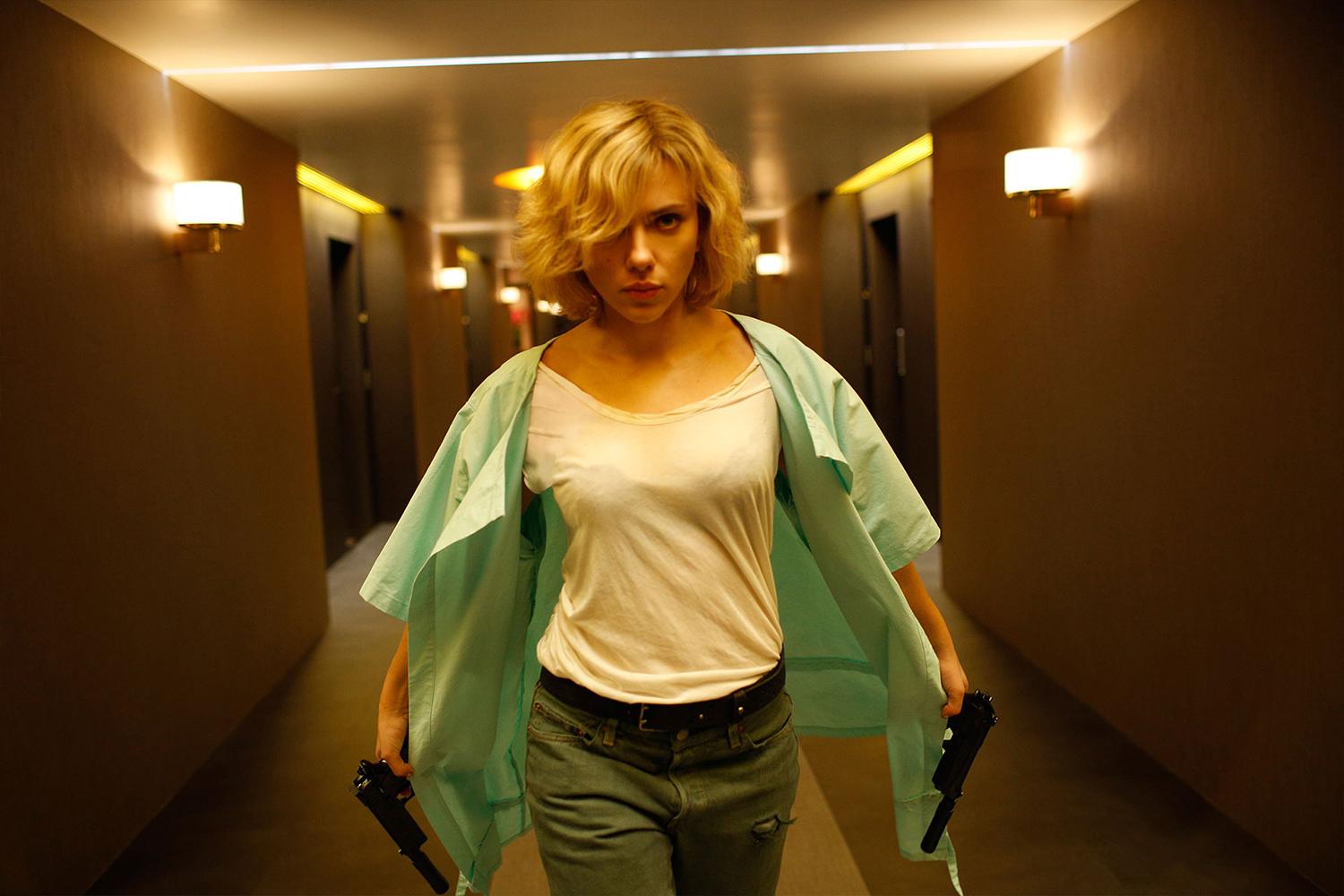The premise of Lucy reads like standard summer blockbuster fare: An unwilling drug mule played by Scarlett Johansson gains powers when an accidental overdose unlocks additional brain capacity. But “Black Widow: The Solo Adventure” this is not.
Writer and director Luc Besson explores the potential of unharnessing the human brain with a much more philosophical bent than the ass-kicking, rocket-launching trailers suggest.
Johansson’s titular Lucy is the drug mule. She’s forced into service when a scummy boyfriend tricks her into delivering a mysterious suitcase to a local gangster. It turns out that the case contains four packets of a new synthetic drug. One is surgically inserted into Lucy’s abdomen, but the bag ruptures when she’s the victim of an unplanned beating while enroute to the drug’s destination.
The inadvertent overdose triggers a ticking clock. It’s not apparent to the viewer, but Lucy knows that she’s not going to survive long. So begins a quest to find the remaining pouches and use their contents to extend her life just a little bit longer. Why? Lucy’s got a gift to share with us all. That’s the big secret.
The entire first act leading up to Lucy’s unfortunate head trip is interspersed with scenes of Morgan Freeman’s brain expert, Professor Norman, as he gives a talk on what would happen if a human unlocked more than the 10-percent we’re all believed to use. His fantastical rundown of real-life superhumanity amounts to a tease of what’s to come for poor Lucy as her slip-sliding humanity rapidly disappears.
Besson intercuts stock nature footage throughout the first act to help render some of Lucy’s heavier theoretical science in relatable terms. Humans are just another animal on the planet Earth, subject to the same systems and laws that govern everything else. Dolphins use 20-percent of their brain, and they’ve evolved to have a biological echolocation system that is more advanced than our most powerful radars. What would happen if a human could unlock that much brain potential, or more?
They become dull and robotic, for one. It makes a certain amount of sense. Lucy’s increased brain capacity translates first into absolute control over her body’s inner workings and, later, into control over materials and forces outside of herself. That sort of change would naturally create a sense of detachment or distance from the rest of humanity, but it doesn’t make for an interesting lead.
Humans are just another animal on the planet Earth, subject to the same systems and laws that govern everything else.
You have to feel for Johansson here, saddled as she is with an acting role that removes virtually all emotion from the equation. She’s a talented performer and she proves it in the early, pre-overdose scenes when Kang, the Taiwanese gangster played by an underused Choi Min-sik, terrorizes her. There’s no arc for her transformation from terrified captive into stone-faced smarty-pants, however, and it’s a jarring shift.
This might have been more bearable if Besson had built a more dynamic supporting cast around Lucy. Freeman does his usual “Morgan Freeman thing,” spitting out theory-as-fact with all the gravitas of a man who knows what the hell he’s talking about. Min-sik is established early on as a promising antagonist, but he’s ultimately nothing more than a caricature, used to create tension in a story that doesn’t necessarily require it.
The bulk of the non-robot screen time goes to Amr Waked, a French police officer that Lucy drags along on her search for the rest of the drugs. He’s a “reminder,” as she puts it, a man who she might have slipped her number to in another life. His character has a name, but it’ll take a post-viewing IMDB search to remind yourself of what it is. Most will leave theaters thinking he’s simply “French cop” or, alternatively, “emotional presence.”
Besson takes a potentially fun idea, but instead of weaving it into a more cerebral Fifth Element, he traps himself in philosophical ruminations on unproven scientific theories. Lucy is a message-driven movie couched in the language of an action blockbuster, and it’s an awkward fit.

The director’s trademark sense of style is ever-present in the handful of set piece moments. There’s a temptation to compare the Lucy seen in trailers to Johansson’s Black Widow character from the Marvel Studios universe, but the truth is that she’s above such petty concerns. Why would Lucy need to leap and spring her way around an old-fashioned ass-kicking when, with the flick of a finger, she can put a hallway full of armed men to sleep?
This is where we really get to the heart of Lucy’s problems. The theory is too nonsensical to remain interesting, especially as Besson’s script starts to simply riff on the human condition in the final act. Opposite that is the action, which feels increasingly forced as Lucy’s rapid evolution outgrows simple concerns. The result is a story that feels divided against itself.
The Fifth Element is a good counterpoint to Lucy, as it tapped into some heavy ideas of its own, but it did so much more eloquently. Lucy is a mess, though an admittedly beautiful one. The action sequences pop just as you’d expect them to and the flashy visual effects help ground some of the more fantastical ideas within the realm of physical understanding. But when all is said and done, Lucy’s intended gift – a clearer understanding of life and the laws that govern it – is just as incomprehensible as the unproven theories her journey is founded upon.
(Media © Universal Pictures)






